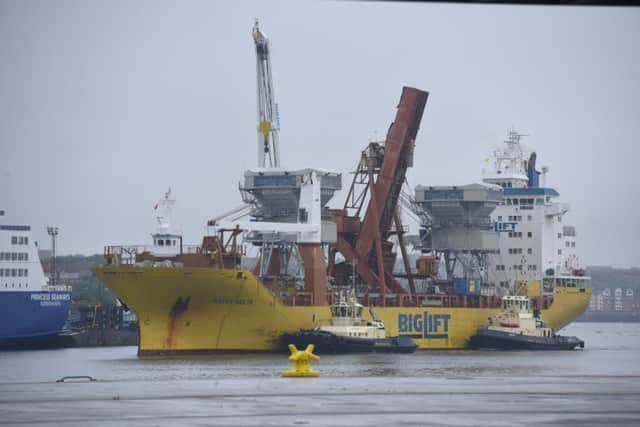£4.5million eco-hoppers delivered to Port of Tyne


The 19m-tall structures were designed to the port’s specification, building upon its leading expertise in the handling of wood pellet, a renewable fuel for power stations.
The hi-tech, fully automated hoppers are integral to the import of wood pellet for Lynemouth Power Station, in south Northumberland, which by the end of 2017 will have been converted from coal-fired to biomass power generation.
Advertisement
Hide AdAdvertisement
Hide AdThe conversion is one of the largest civil engineering projects in the UK, with a total of £300million invested by Lynemouth Power Limited (LPL).
Three 36m-high silos and 1,300m of enclosed conveyors are under construction at the port. In total, the project has created 1,000 jobs in construction alone and when completed is expected to provide 130 full-time jobs.
Lynemouth Power Station will generate 420MW of energy, enough to power 450,000 homes.
Andrew Moffat, Port of Tyne chief executive officer, said: “Since the UK’s decision to shift away from coal-fired power generation we have been putting in place the infrastructure to handle, store and transport the wood pellet cargoes.
Advertisement
Hide AdAdvertisement
Hide Ad“The investments we have made in increasing port capacity, including £25million spent extending and upgrading Riverside Quay and a total of £13million to provide the facilities for Lynemouth Power Ltd, has ensured that we are in a good position to replace the coal volumes that had virtually disappeared by the end of 2016.”
Paul Tomlinson, managing director of LPL, said: “The handling, storage and transportation of the wood pellets is critical to the success of the converted power station.
“We chose to work alongside the Port of Tyne given its track record for such activity.
“Together we’re working on an internationally significant infrastructure project, one of the largest ever undertaken in the power industry, that delivers the parallel benefits of energy security, environmental improvement and jobs.”